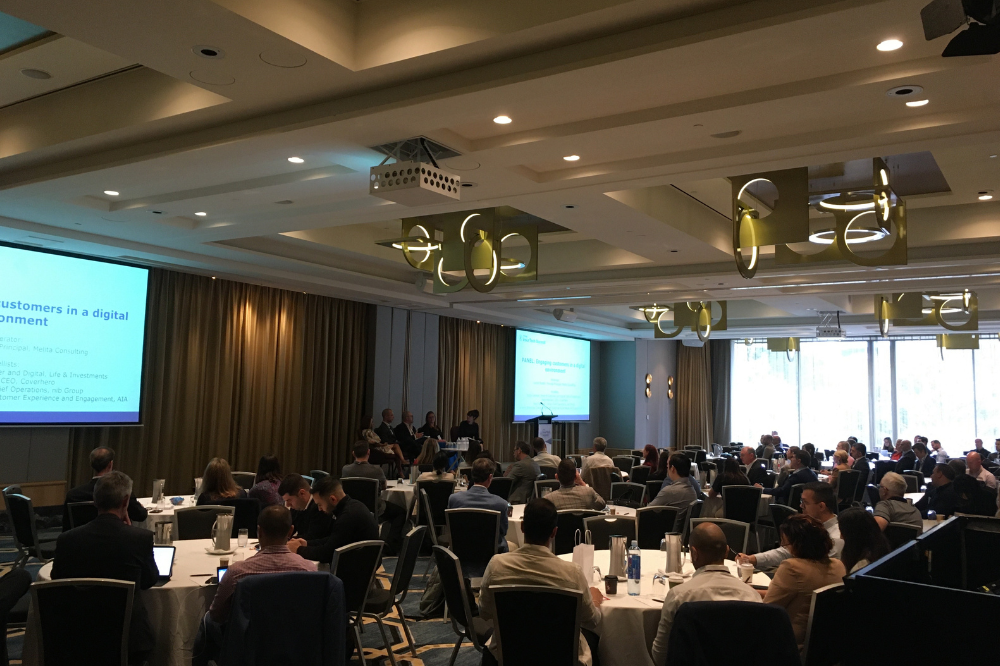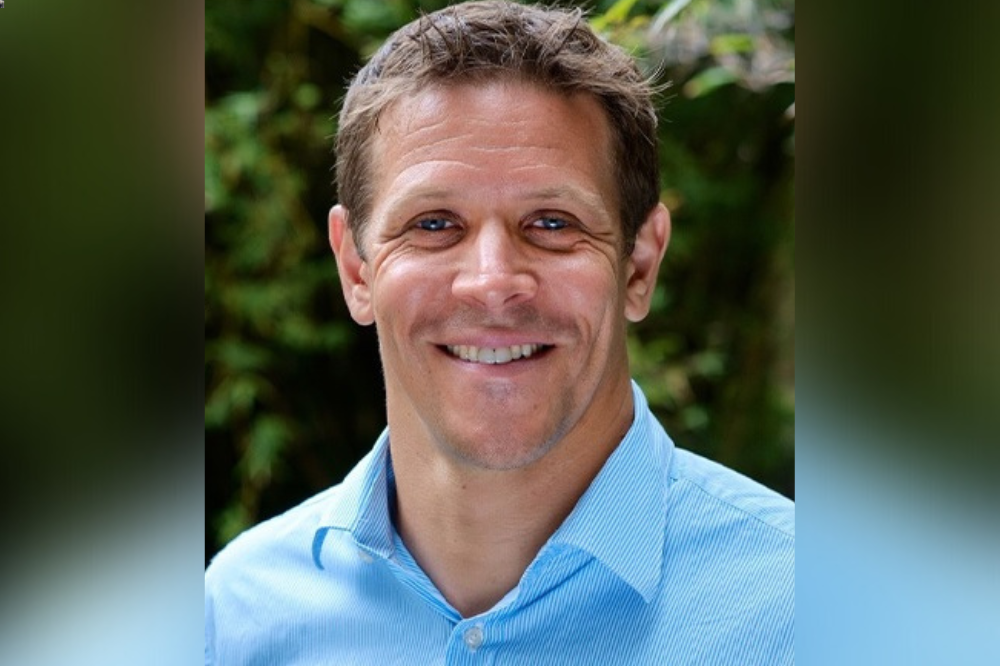Insights and drama from the InsurTech Summit

From the morning’s opening panel discussion dealing with engaging customers through to IAG (Insurance Australia Group) automation evangelist Probir Dutt’s afternoon talk, the summit was informative and at times dramatic.
Read more: What is an evangelist doing at the InsurTech Summit?
“There was a real data theme that flowed through all the conversations which was interesting. There was also a [lot on] predicting and preventing risk versus just solving the impacts of it. For me, those were two themes that came out,” said Kanopi Cover CEO Nigel Fellowes-Freeman (pictured below at the Summit).
Kanopi, the Melbourne based insurtech, sponsored the day’s lunch to draw attention to the rising important of insurance industry partnerships, particularly between big insurers and more agile insurtechs.
The summit’s first moment of drama came during the opening panel discussion, Engaging customers in a digital environment.
One focus of the panel was the power of customer data and the difficulty big insurance companies have making sure their employees, at all levels, understand the power of that data and how useful it can be.
“So, we’re sort of grappling with getting people to understand data across the organization and the power of that,” said Matt Paterson, group chief operations officer with healthcare fund nib.
Paterson said nib is setting up a data governance framework and a data governance forum for people across the entire business, not just the data scientists and senior management.
Jacqui Lennon, head of customer and digital, life & investments at Zurich Financial Services Australia agreed with Paterson and talked about “democratizing data” and “how hard it is to get executive buy-in to putting data in one spot.”

“It’s so critical to have good data that everyone is confident about as well that they can confidently rely on and then spread it out throughout the business,” she said.
Following this polite discussion by the big insurers on data doubts and challenges came a proverbial bomb. The fourth panellist – very quiet until this moment – suddenly declared in a loud voice:
“Of course, we believe in the data!”
In stark contrast to her co-panellists, Naby Mariyam (main picture at top), CEO of the insurtech Coverhero, said convincing her company to appreciate the data was no issue.
“The challenge we have is getting traction and financial backers,” she added.
Moving the discussion back to the topic she discussed how Coverhero’s challenge has been improving pds documents so they can be generated according to the specific insurance needs of customers.
“Let’s put 200 benefits on our platform and then a particular customer comes in and picks and chooses and then it would automatically generate the pds at that point of underwriting – that’s the Holy Grail,” she said.
Moderator Louise Portelli, principal of Melita Consulting, asked the panellists what they’d like insurance to be for their customers in 10 years’ time?
“So when I think of health insurance, we’ll know everything about you,” said Paterson. “We’ll know how healthy you are, what diseases you are going to get and we’re not going to be focused on how do we react to all of that, but more, how do we prevent. Our claims teams are going to absolutely diminish because we’re going to be keeping you healthy.”
Lennon said the industry has to rebrand and overcome the trust gap.
“We’ve got this terrible relationship with our customers and that’s not sustainable. It’s not what the younger generations are looking for in terms of use of brands,” she said. “So I think we’re going to have to up our game in terms of transparency and communication.”
Jeremy Simmons, general manager of customer experience and engagement at AIA Australia warned that a very digital savvy generation is about to come to the fore. He said the “fixed and premeditated views” of industry leaders will have to change to keep up.
“I think it’s [the challenge in 10 years] – how are we going to do that personalization and how are we going to win that trust and stay trustworthy as a partner who helps with their life experiences rather than sell them a product,” he said.
Read more: Can insurers embrace the insurtech challenge in 2022?
Mariyam said there are lots of complicated problems to solve, so best to focus on one.
“For us, it’s about accessibility and creating equity that everybody should be insured, regardless of who they are and what their circumstances. So we’re going to focus on solving that problem for the next 10 years,” she said.
The next speaker helped release any tension by requesting that everyone stand, stretch and wave their arms around. Daniel Fogarty, founder and CEO of Evari talked about Changing insurance from within: Leveraging the latest tech to win.
One of the data technologies he explained was event streaming, as used by Netflix and Uber. Event streaming is a system that is able to take advantage of continuously produced data.
He talked about a customer who owned a restaurant on a river that was destroyed by flooding. The customer was especially distraught because he was due to host both his children’s weddings at his now destroyed venue within the next three months. Luckily, he had flood cover with Zurich and he received $100,000 in time to fix up his venue.
Fogarty said for insurers working with customers “there is nothing better than getting the money to them quickly.” Event streaming, he said, would allow insurers to process and pay insured flood victims claims as soon as they were received.
“We can do this though an event stream, we can get it out there, we get the data straight away. No-one has to look at this. We can actually pay the customer straightaway because we know what this is and put the money in their account,” he said.
Talbot Henry (picture below), Australia country manager for life, health & travel with Verisk moderated the panel Leveraging analytics to improve the insurance value chain.

Panellist Ben Webster, co-founder of Agile Underwriting Services, talked about the importance of gathering relevant data. When he was part of the team that built Travel Insurance Direct, Webster said he was asking people travelling overseas for their home address even though it wasn’t necessary for compliance.
“I said to the underwriter, ‘Why do we need to know the address?’ The underwriter said, ‘Because I need to know where to send the body.’ I said, ‘If you knock on my front door and say to my wife, ‘Here’s the body,’ that’s not a great user experience.”
Webster suggested that the insurance industry has become more mindful of data and the customer experience since those days.





